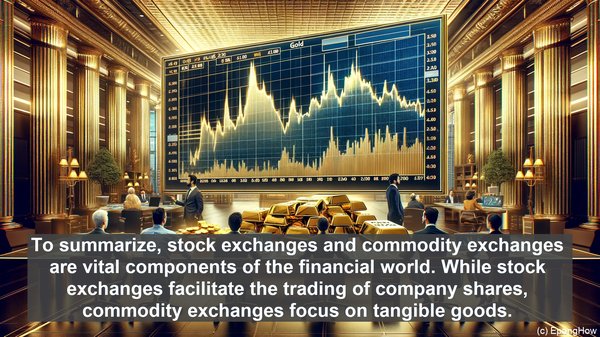Introduction: The World of Exchanges
Hello everyone! Welcome to our article on stock exchanges and commodity exchanges. These exchanges are the backbone of the financial markets, facilitating the buying and selling of various assets. While they share some similarities, they also have distinct characteristics. Let’s dive in!
Understanding Stock Exchanges
Stock exchanges primarily deal with the trading of company stocks or shares. When a company decides to go public, it offers its shares to the public through an initial public offering (IPO). These shares are then listed on a stock exchange, such as the New York Stock Exchange or NASDAQ. Investors can buy and sell these shares, and the exchange acts as an intermediary, ensuring smooth transactions. Stock exchanges also provide a platform for companies to raise capital by issuing additional shares.

Key Features of Stock Exchanges
Stock exchanges operate during specific trading hours, usually from morning to afternoon. They have a centralized location, often a physical trading floor, although most trading is now electronic. These exchanges are regulated by financial authorities to maintain transparency and fair practices. Additionally, stock exchanges have stringent listing requirements, ensuring that only financially sound companies are listed, providing a level of credibility to the market.

Exploring Commodity Exchanges
Commodity exchanges, on the other hand, focus on the trading of commodities. Commodities are raw materials or primary agricultural products, such as gold, oil, wheat, or coffee. Unlike stocks, which represent ownership in a company, commodities are tangible goods. Commodity exchanges provide a platform for buyers and sellers to trade these goods, establishing standardized contracts that specify the quantity, quality, and delivery terms.
Unique Aspects of Commodity Exchanges
Commodity exchanges often have specialized storage facilities, ensuring the safekeeping of the physical goods. They also play a crucial role in price discovery, as the trading activity on the exchange reflects the supply and demand dynamics of the commodity. Additionally, commodity exchanges offer hedging mechanisms, allowing producers and consumers to mitigate price risks by entering into futures contracts.
